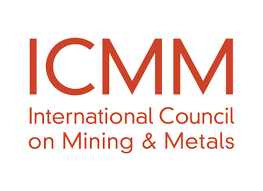To Prevent Harm and Uphold Rights, ICMM Must Address the “Critically Weak” Indigenous Peoples’ Policy

Statement from the Securing Indigenous Peoples Rights in the Green Economy (SIRGE) Coalition about the International Council on Mining and Metals’ (ICMM) Position Statement on Indigenous Peoples
On August 8, the International Council on Mining and Metals, a mining industry trade association representing one third of the global mining industry, released a new position statement on Indigenous Peoples. The Securing Indigenous Peoples’ Rights in the Green Economy, or SIRGE Coalition urges ICMM to revise, correct and strengthen this statement to address critical gaps and shortcomings that threaten perpetuating the mining industry’s historical harms to Indigenous Peoples. Given that over half of all mining for energy transition minerals globally are on or near the territories of Indigenous Peoples, ICMM must ensure its members operate in a manner that fully respects and upholds the rights of Indigenous Peoples.
While the updated ICMM position statement acknowledges Indigenous Peoples’ rights, SIRGE notes that it allows for a wide degree of flexibility and interpretation potentially putting Indigenous Peoples and their rights at serious risk. The SIRGE Coalition urges ICMM to require that its mining company members to fully commit to obtaining Free, Prior and Informed Consent (FPIC) as enumerated in the United Nations Declaration on the Rights of Indigenous Peoples (UNDRIP).
ICMM must clearly state that no project can proceed without the explicit Free, Prior and Informed Consent of affected Indigenous Peoples. This requirement must be absolute—if consent is withheld, the project must not move forward.
ICMM’s reliance on States to fulfill Free, Prior and Informed Consent obligations is a critical flaw. As a standard bearer for industry, ICMM policy should recognize that State standards may be inadequate, insufficient or non-existent compared to accepted international standards. ICMM members are among the world’s largest and wealthiest mining companies in the world, and must take direct responsibility for ensuring their operations fully respect Free, Prior and Informed Consent as outlined by UNDRIP. ICMM members must implement and operationalize these policies with full participation of impacted Indigenous Peoples, especially in contexts where States fail to uphold Indigenous Peoples’ rights.
“We recognize that ICMM has made efforts to improve its Indigenous Peoples’ Position Statement but it falls short and places Indigenous communities at continued risk from mining activities. If mining companies want to comply with international standards for Indigenous Peoples’ rights and ensure their Social License to Operate when they operate on the traditional lands and territories of Indigenous Peoples, ICMM must include stronger commitments,” said Galina Angarova, Executive Director of the SIRGE Coalition. “Many Indigenous Peoples’ communities distrust the mining industry due to the historic legacy of harm that mining companies have left behind on Indigenous lands and territories. Mining companies must always respect Indigenous Peoples’ rights to self-determination and to offer or withhold their Free, Prior, and Informed Consent.”
Furthermore, the policy’s inconsistent use of terminology – interchanging the terms “agreement” and “consent” – not only creates confusion but allows for misinterpretation of legally defined terminology. Free, Prior and Informed Consent is Indigenous Peoples’ right to say “yes,” “no,” or “yes” with qualifications. While agreements can be expressions of consent and self-determination, they can only be achieved when Indigenous-defined Free, Prior and Informed Consent priorities, processes, and protocols are fully integrated and operationalized. ICMM and its members must consistently use the term “consent” or “Free, Prior and Informed Consent” avoiding the substitution of these terms with “agreements” or “consultation.”
ICMM’s position also fails to address the ongoing harms from past projects, leaving unresolved impacts on the rights and well-being of Indigenous Peoples. Free, Prior and Informed Consent commitments must be applied in a manner that addresses past harms and continued impacts from existing mining activities.
The SIRGE coalition notes additional concerns with the ICMM position statement, including the lack of clear guidelines for enforcing Free, Prior and Informed Consent, insufficient due diligence requirements, inadequate protections for Indigenous Peoples in Voluntary Isolation and Initial Contact, and the lack of directives for engaging vulnerable populations, particularly Indigenous women and elders.
The SIRGE Coalition supports the recommendations outlined in critical analysis, which concludes:
“The ICMM’s Position Statement shows a minimal effort to align with the principles of UNDRIP, ILO 169, IFC PS7, and the UNGPs; significant improvements are necessary to truly uphold these international standards. The ICMM must eliminate ambiguity in the application of FPIC, apply these updated commitments retrospectively, address potential conflicts between State and corporate responsibilities, ensure the participation of vulnerable Indigenous Peoples, make no contact with Indigenous Peoples in Voluntary Isolation and Initial Contact, establish robust monitoring mechanisms, implement clear redress and remediation processes, and enhance the protection of Indigenous cultural heritage. Only by addressing these critical areas can the ICMM ensure that its practices genuinely respect and uphold the rights of Indigenous Peoples, fostering sustainable and equitable development.”
As published, ICMM’s deeply flawed position allows the continuation of harm to Indigenous Peoples by mining operations and calls into question ICMM’s stated commitment to respecting Indigenous Peoples’ rights. Mentioning international frameworks without robust accountability mechanisms undermines the instruments to uphold Indigenous Peoples’ rights.
The SIRGE Coalition calls on the ICMM and other standard setting bodies working towards a consolidated mining industry standard, to correct, strengthen and provide more clarity in their Indigenous Peoples policies, or run the risk of perpetuating harms and rights abuses.